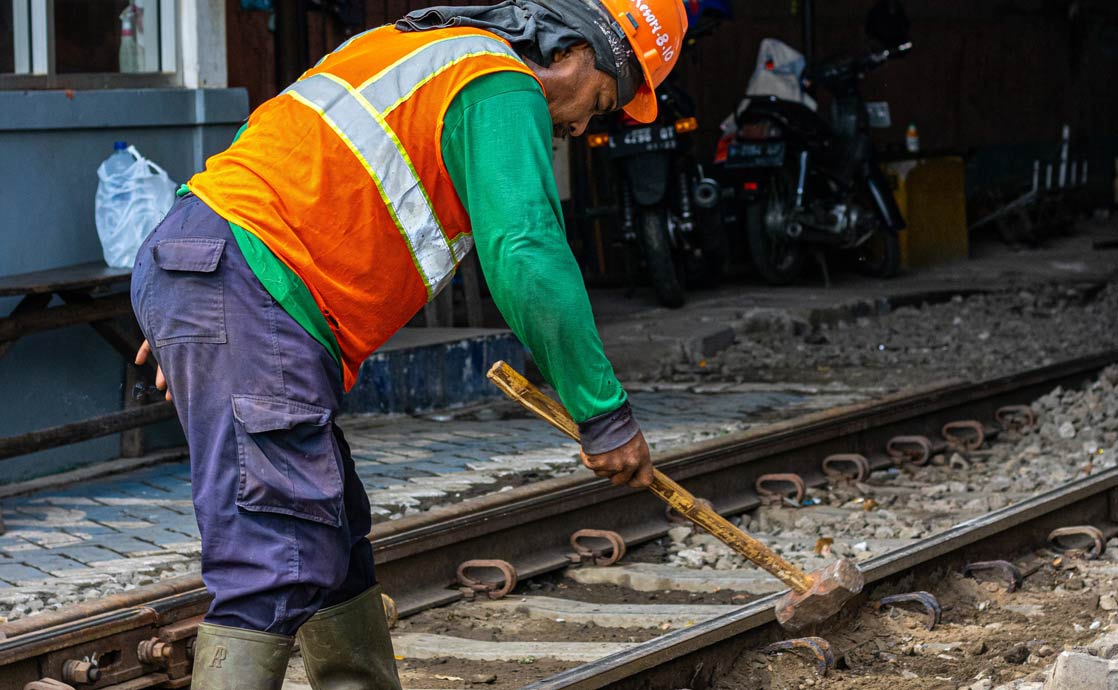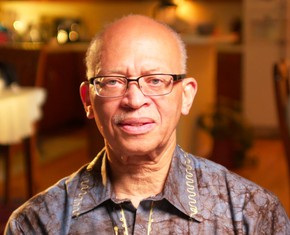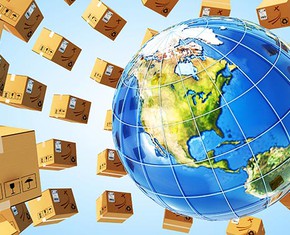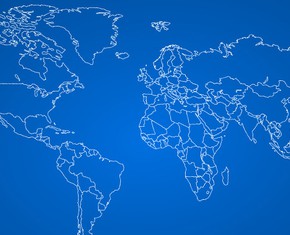The views expressed in our content reflect individual perspectives and do not represent the authoritative views of the Baha'i Faith.
Since graduating from college, traveling a rough road and moving into working adulthood, I’ve spent roughly equal amounts of time in two decidedly different worlds — and that experience has given me a great gift.
America is trying desperately to reconcile deep, pernicious divides and prejudices in our country as we continue to stumble toward truly becoming “One Nation, Under God.” Divisions caused by racial prejudice, economic injustice, and nasty political polarization have garnered the most attention.
In my life, I’ve experienced both sides of another sharp divide — that of class, or more specifically between the economic spheres broadly described as “blue collar” and “white collar.” Like all other ignorant prejudices the Baha’i Faith asks us to abandon, I’ve tried to bridge those class divisions. In a talk in 1912, Abdu’l-Baha, the son of Baha’u’llah, the prophet and founder of the Baha’i Faith said:
According to the teachings of Baha’u’llah all religious, racial, patriotic and political prejudice must be abandoned, for these are the destroyers of the real foundation of humanity.
My degree is in journalism, with minors in sociology and political science. So, I felt well-prepared when, in the early 1990s, I eagerly began a career working for newspapers in my beloved homeland, the Rocky Mountain West. It didn’t take long to figure out I had trained for a declining field. The wages were hardly stellar, and as emerging digital media eroded newspapers’ profitability, the staff cuts began. I experienced three major job losses during the last 12 years of my print career, each time having to re-build essentially from zero — but, each time, going farther than I had before.
I quickly discovered that if, upon losing a newsroom job, moving wasn’t an option – which because of family circumstances, for me, it wasn’t – I had to take whatever work I could find in whichever little town or small city I lived in at the time. Luckily, my father instilled in me a staunch work ethic and a deep appreciation for good, old-fashioned physical labor. When my wife and I married ten years ago, it was far greater than a union of two — our wedding sealed the formation of a blended family with five children. At one point, we both worked at low-wage, graveyard-shift jobs with all the children and us — then aged 4 to 19 — stuffed into a house with one bathroom. Needless to say, I’m familiar with struggle.
After my last newsroom layoff, in 2015, I searched for several months before finding a warehouse job at the University of Wyoming. Now I can safely say I’ve thrown in the towel on my newsroom career. When people ask me how that feels, I’m most apt to say, “I miss the work, but I don’t miss the job.”
I haven’t shared this with you to gain sympathy. After all, I’m hardly alone; I’ve met numerous other displaced professionals on my journey. I like my current blue-collar job and the people I work with. I’ve actually found more diversity of color and a greater shared sense of equity in this job than I noticed in the professional world. Moreover, my editorial skills and experience haven’t gone unused. I’ve also found a part-time telecommuting gig with a publishing company. I continue to grow and be challenged as a writer and editor.
Instead, my point is that I’ve come to understand and comfortably move through decidedly different and essentially separate worlds. I’ve also noticed, at least among my fellow white people, that discussion of racism has largely happened among the academic, artistic, and professional classes. There’s nothing intrinsically wrong with that. After all, those sectors often initiate fundamental social change.
But, I also have a message for my fellow white people: Discussions about white privilege and racism in professional offices and the halls of academia are stimulating and important — but until we get the welders, truck drivers, janitorial staff, and service workers on board, not much will really change.
Consider two pivotal works from a white perspective: “White Privilege: Unpacking the Invisible Knapsack,” an essay by Peggy McIntosh; and, “White Fragility: Why It’s So Hard for White People to Talk About Racism,” a best-selling book by Robin DiAngelo. Both are excellent, I think. Yet, both are solidly centered on professional, metropolitan perspectives, which working-class people, or folks out here in “flyover country,” might find difficult to relate to.
What’s more, I think racism and class division are deeply intertwined, and not by accident. Racism in America is kept alive largely by a system of “kicking down,” which has people on the lower rungs of the social ladder preoccupied by who they are supposedly “better than,” while ignoring the greater status quo kicking down on them.
Historically this class-conscious racism traces back to “Bacon’s Rebellion,” which occurred in the Virginia colony in 1676, led by a commoner named Nathanial Bacon. Sparked in the midst of a war with some of the Indigenous peoples in the area, it pitted a coalition of lower-class people of all racial backgrounds – slaves, indentured servants and free — against the wealthy white elites. Its immediate results were mixed, but it taught the elites an important lesson — they learned that solidarity between African American people and white commoners represented a genuine threat to their power. The Virginia Slave Code of 1705 was, some argue, a direct response to that rebellion, designed to drive a wedge between people of color and the white lower classes. Among other things, it prohibited free Black people from owning arms and stated that Black people could not employ anyone but other people of color.
If driving a wedge was indeed the intent, it worked. The appalling system of kicking down the social ladder – with Black and Indigenous people constantly held at the bottom – has distracted many rank-and-file white working-class Americans from a system that’s also been unjust to them. White privilege among the lower classes serves largely to keep them complicit and playing their part in systemic racism. The average American’s wages have been stagnant for decades. People increasingly work harder for less. If you’re in the working-class sphere, how many of your coworkers have more than one job – just to make ends meet? Nearly all of mine do. I do, too.
In 1960, then-senator and future president Lyndon Baines Johnson put it bluntly and succinctly: “If you can convince the lowest white man he’s better than the best colored man, he won’t notice you picking his pocket. Hell, give him somebody to look down on, and he’ll empty his pockets for you.”
So, I suggest we stop kicking down and seek a way forward by dismantling the ladder of systemic racism. However, we should bear in mind that past attempts to do this through violent revolution have failed, often resulting in even worse circumstances for the common folk.
Another “Bacon’s Rebellion” might be in order, but this time, it must be spiritual in nature — a revolution of the soul and heart, untainted by spite or vengeance — from which wealthy, middle class, and poor alike will benefit. I firmly believe the spiritual solutions to economic injustice offered by the Baha’i Faith hold the key to successfully unshackling the crippling effects of intertwined racial and economic prejudice and injustice. As Abdu’l-Baha said:
Among the results of the manifestation of spiritual forces will be that the human world will adapt itself to a new social form, the justice of God will become manifest throughout human affairs, and human equality will be universally established. The poor will receive a great bestowal, and the rich attain eternal happiness. For although at the present time the rich enjoy the greatest luxury and comfort, they are nevertheless deprived of eternal happiness; for eternal happiness is contingent upon giving, and the poor are everywhere in the state of abject need. – The Promulgation of Universal Peace.
You May Also Like
Comments

















(Baha'u'llah, Gleanings from the Writings of Baha'u'llah, p. 118)